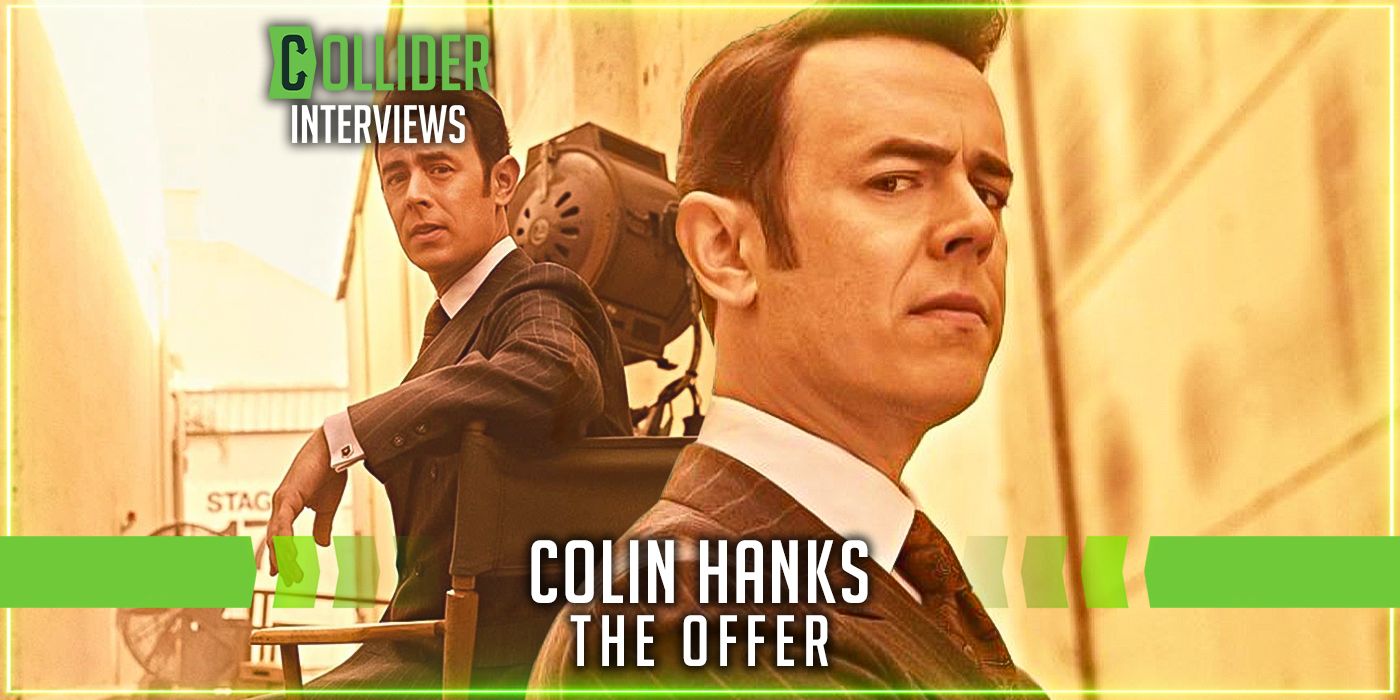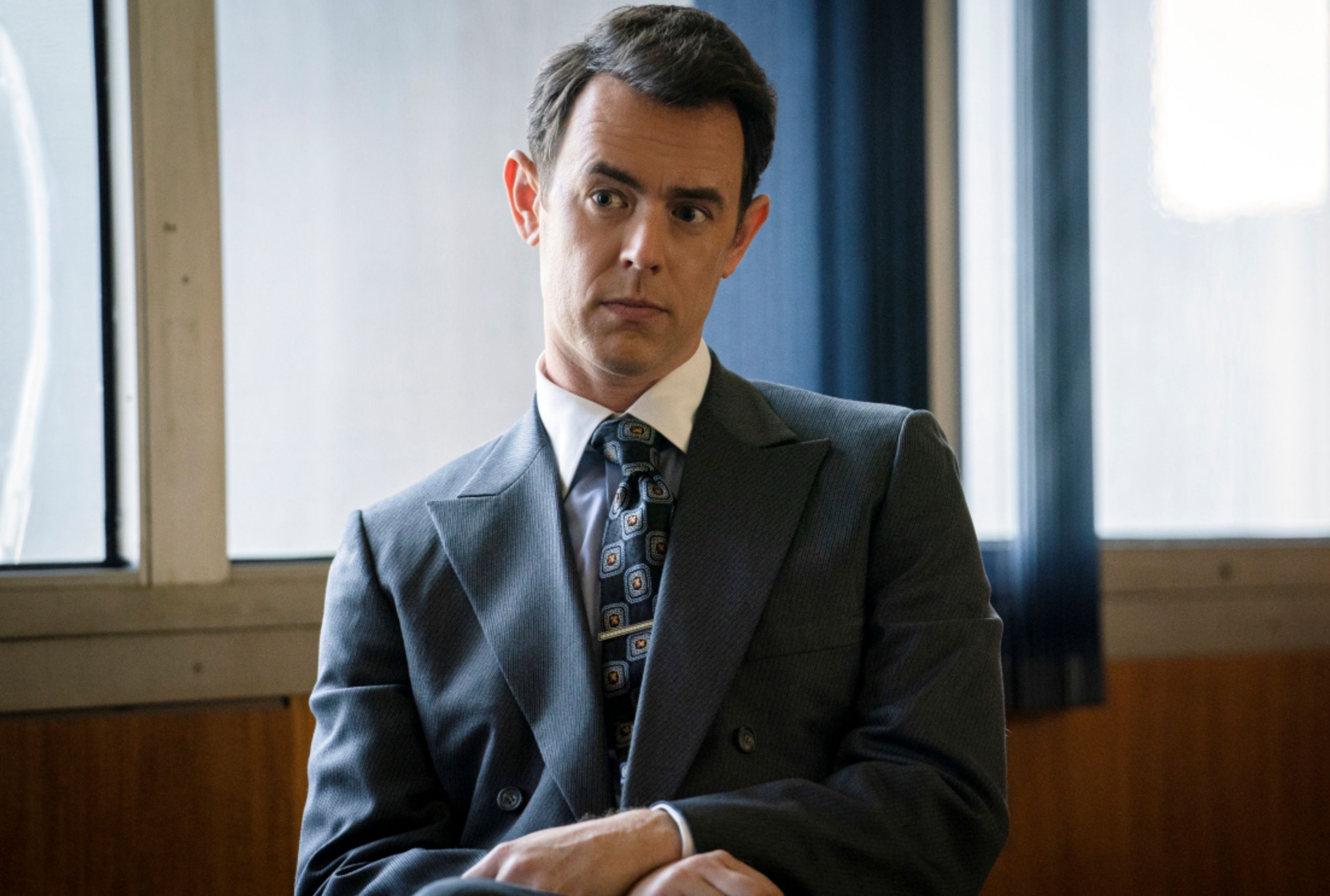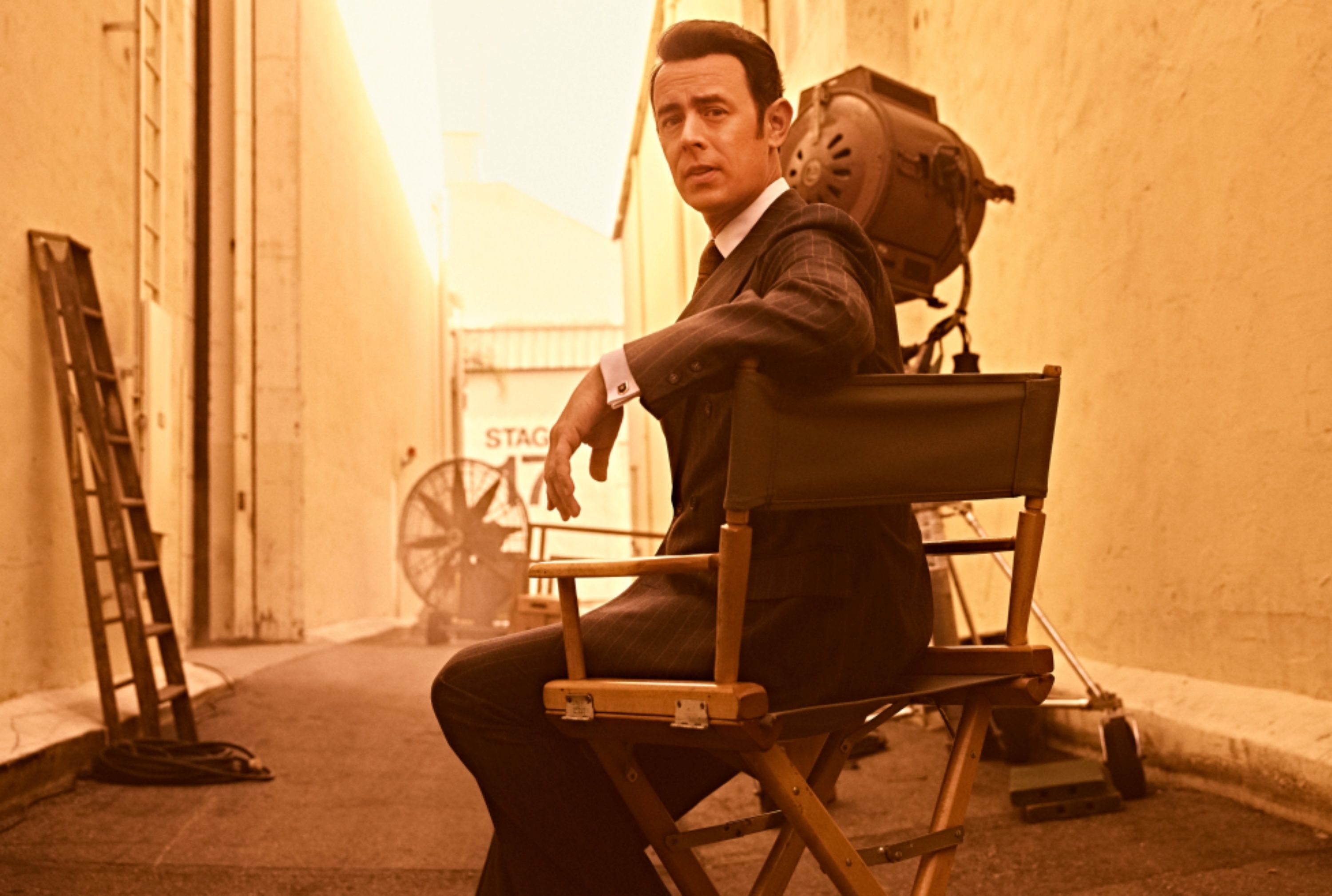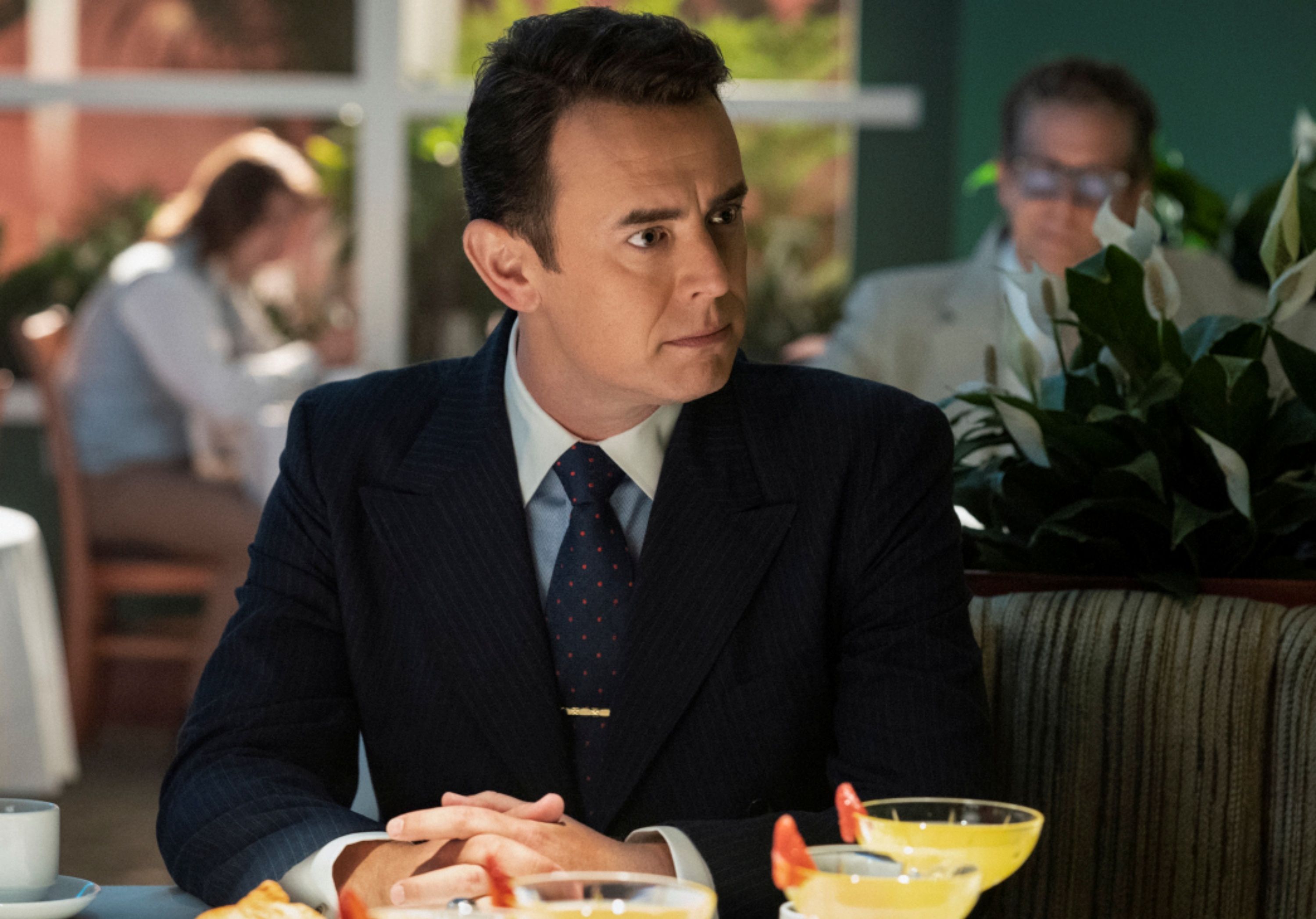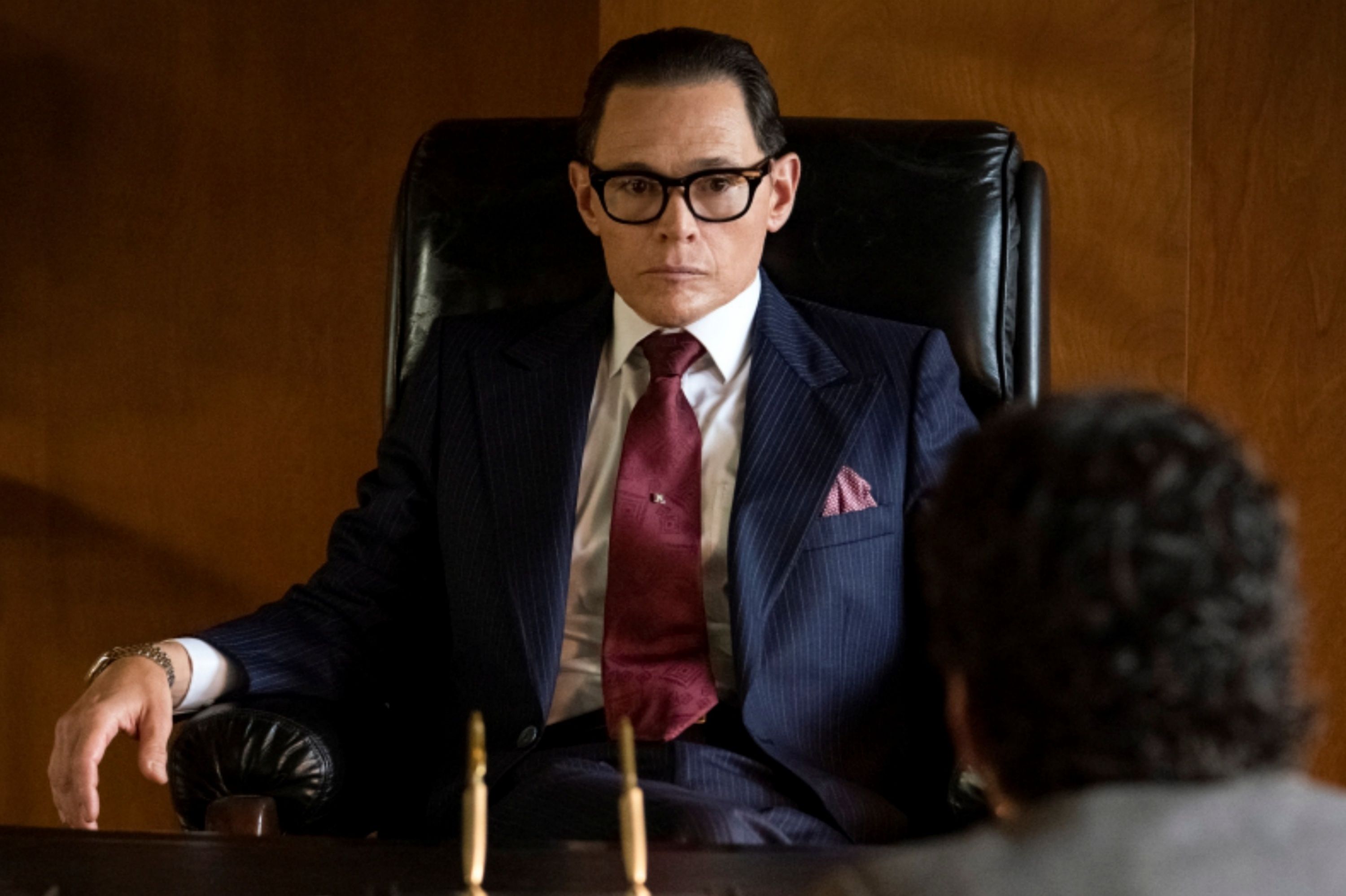Based on the extraordinary experiences of Academy Award-winning producer Albert S. Ruddy while making The Godfather, the Paramount+ original series The Offer shows the wild journey the New York City gangster film that had the approval of the actual mob remarkably took on its way to becoming one of the great cinematic masterpieces. In order to make the movie happen, Ruddy (Miles Teller) needed to get Paramount Pictures’ head of production Robert Evans (Matthew Goode), mob boss Joe Colombo (Giovanni Ribisi), the money guys (Burn Gorman, Colin Hanks), author Mario Puzo (Patrick Gallo) and director Francis Ford Coppola (Dan Fogler) all on the same page long enough to finish the production and assemble what they all knew it had the potential to be.
During this 1-on-1 interview with Collider, Hanks (who plays fictional high-ranking Gulf + Western exec Barry Lapidus) talked about really digging into his character, the experience of working with old friend and series director Dexter Fletcher, how he feels about The Godfather, what his first day on set was like, and the fun of finding the Barry Lapidus and Charles Bluhdorn dynamic with co-star Gorman.
Collider: What was it like to figure out how to approach doing this?
COLIN HANKS: Nikki Toscano, the showrunner and one of the creative forces behind the show, was always just incredibly supportive of all of us and was really just such a champion for everyone, the entire way. There was something unique that we did, before we even rolled a first frame. Dexter Fletcher, who’s actually an old friend of mine, from when I did an episode of Band of Brothers, and who’s now a very accomplished and talented director that did our first two episodes, and he’s one of producers on the show, did something really, really unique. He had all of the cast members of the pilot episode – everybody, even if you only had one scene of dialogue – come in for a table read, which is pretty standard, but he asked all of us to write and come up with our character’s backstory. That forced all of us to really take hard looks at our characters.
There were some people that were able to do a lot more digging and homework about their characters because some of them are incredibly well known, and some were known to a lesser degree, but he had all of us sit around in a circle, after that table read and we all spoke about our characters, and we all listened to everybody. That’s really unique. That does not happen very often. It was really an opportunity, and Dexter said as much. There are so many characters in the show, and there are these two different worlds. There’s the mafia world, and there’s the Hollywood world, and the film brought those two together. It was really galvanizing for all of us because it set a bar, and it made all of us understand that we were all making this thing together, whether we were gonna be working with the person or not. For the acting department, that was our role. That was what we needed to do, and it really made everyone up their game. You’re also talking about one of the greatest films ever made, with some of the greatest actors of all time, so you better do your homework and you better show up, ready to work. That’s what we all did, and we all really loved the challenge.
That must have been really helpful, not just for you, as an individual actor figuring out your own character, but also hearing what everybody else is doing and where their heads are at.
HANKS: Absolutely. It was incredibly helpful for the people that you’d have scenes with. A majority of my scenes were with Matthew Goode and Burn Gorman, who I absolutely adore and love and would jump in front of a moving bus for. They’re great guys, and we had so much fun working together. It was that thing of, “Let’s all really work and go for it, and have fun doing it.” We weren’t these tortured souls, or anything like that. We were really enjoying all of our different roles. My character is the guy that, as soon as he walks into a meeting, it’s bad. People don’t like him. I enjoyed that. I really loved that.
What were your own personal feelings about The Godfather, prior to making this?
HANKS: What’s unique about The Godfather, and I think one of the reasons why it has had the impact that it has, is that you can watch the film at various stages of your life, and it means different things, each time. The first time I watched it, I was a young guy, so I didn’t really necessarily understand everything that was going on. And then, when I was a little bit older, but still a young guy, I definitely understood components of what Michael was going through and what Sonny was going through, and what Fredo goes through. But then, as I’ve become a father and gotten older, now I’m seeing things from the Don’s perspective. It’s just one of those films where, as time goes on, you can always go back to it and pick up something new and get a deeper appreciation for all of the components of the film. That’s what the good movies do.
Have you watched it since doing The Offer?
HANKS: I definitely sat down to watch it before we started filming, just to do it. Dexter had actually suggested a handful of films from that era that he was using as inspiration, which was great for me because they were all movies that I felt Barry Lapidus would say no to and not want to make. It was actually highly informative for my character. But I haven’t watched it since, and I don’t think it would really change my interpretation of the film because the truth is that all movies have issues. All movies almost don’t get made. Ultimately, for fans of The Godfather, this is all delicious catnip that is fun and enjoyable, and a fun thing to geek out on. But even if you’re not a fan of The Godfather, it is incredibly engaging when you realize just how many miracles it takes to make a movie. It’s a miracle, if you’ve got a good idea. It’s a miracle, if you can write a good script. It’s a miracle, if anyone finances it. It’s a miracle, if you’re able to cast the people you wanna cast. It’s a miracle, if it looks good. It’s a miracle, if that particular scene is in focus. It’s a miracle, if it doesn’t rain on day 37, when that’s the only time you’re gonna get the exterior of that location. And then, it’s a miracle, if the film is any good. The biggest miracle of all, is if anyone sees it. There were an enormous amount of obstacles that Al Ruddy and company needed to get through, in order to just finish the movie, nevermind the last two miracles of it being any good and people actually seeing it. It really paints an interesting picture of just how far people will go for their films. It helps that it’s one of the most beloved films of all time, for sure. The amount of stuff that happened is just crazy. There was a ton of stuff that I didn’t know about.
When you watch the series, you also really see what a manipulation it all is and how everybody is just telling everybody else what they want to hear, in order to get what they want.
HANKS: Yeah. It’s about, “Just say yes, and figure out how to do it later.” That is really one of the pillars of filmmaking. You’ve gotta really wanna do it. What’s really great about the Al Ruddy that Miles plays in the show and, to a degree, everyone else that wanted to make The Godfather, and I’m excluding Barry Lapidus in that because he’s a composite character of a lot more people that didn’t wanna make The Godfather, they all wanted to really make something that mattered. That was important. Al stumbled into show business and decided that he wanted to make films that mattered, and The Godfather was the first movie that he made. He didn’t know any better. He didn’t know how to do it, but he figured it out, along the way. He said yes, and then figured out how to do it, and that’s pretty inspiring. It’s definitely made me look at jobs a whole lot differently now.
You mentioned Dexter Fletcher having you watch other films. Which of those other films most helped you, in figuring all of this out for yourself?
HANKS: I’ll be honest, there wasn’t any real particular film that stood out for me. There were a handful, like French Connection and Bullit. It really dialed it home for me that, at this particular time, within our show, Hollywood was in a transition period, not too dissimilar from the transition period we’re in now. It was a transition from the old studio system and the old way of doing things into a new, grittier, artistic version of doing things and of making personal films, not necessarily films that were guaranteed to make money, but films that were guaranteed to at least make you think or feel something, whether you wanted to think or feel that thing or not. That’s what really drove it home for me. There’s the speech that Barry Lapidus gives to the board of directors at Gulf + Western, in which he talks about this new crop of filmmakers who don’t understand what the business is. They don’t care about making money and they don’t care about returning our investment in them. I think that really is the old way of looking at things. That’s the old studio system. The Barry Lapidus character is really rebelling against this new upswing in cinema, at the time, that ended up revolutionizing the film industry. It really wasn’t one particular film, but it was what those films represent that really spoke to me and really informed Mr. Lapidus.
I love how each of these characters is the hero to someone and the villain to someone, depending on what the situation is. If someone wants something from them, and they say no, they’re the villain. And if someone wants something from them, and they say yes, they’re the hero. What did you most enjoy playing about someone like that, who can make someone’s dreams come true or end their career, just with one decision?
HANKS: What you’re talking about is actually what real life is. It’s gray. It’s not just black and white. There’s a complexity to that. One of the things I remember talking about, very early on, both with Dexter and eventually to the group at large, when it was time to talk about my character, was that Barry’s reasons are all solid, sound reasons. They’re not ludicrous. He has very deeply held beliefs about what the business is calling for, at that time, and what Paramount should be doing, and how they should be handling things. He wasn’t wrong, it was just a difference of opinion. When you have difference of opinion like that, then you wanna go, “Well, he’s the bad guy. He’s my enemy right now. But if he says yes, he’ll be my best friend.” That’s human nature. Everyone looks at life that way, to a certain degree. Dexter even said, very early on, “I want you for this role so much because it’d be so great for you to be the bad guy who says no, but with a smile,” and I liked that idea. I liked that idea of being combative and saying, “No, I think your idea is stupid, and I don’t wanna make your dreams come true right now because I don’t agree with them.” I thought that was an interesting dynamic within a character that I hadn’t had before.
What was the first day on this set like? Did it all fall into place that first day?
HANKS: To a degree, yes. First days are always awkward and a little weird. It really is very similar to your first day at a new school. The thing that I remember was just being very excited by the caliber of everyone that was involved. I was obviously incredibly geeked to be working with my old friend, Dexter. The way that he works is just so infectious and fun, and everyone is in an upbeat mood. It really set an incredible tone for the whole rest of the series. My first day was all Gulf + Western stuff, with Burn and Miles. I don’t think Matthew was there. It just felt like, “Okay, yeah, this is what we’re doing.”
There’s such a fun dynamic between Barry Lapidus and Charles Bluhdorn. What was it like to find that odd duo dynamic with Burn Gorman?
HANKS: I distinctly remember meeting Burn for the first time and just being so excited. I was like, “I know this guy. I’ve seen him in a million things and this guy is always fascinating.” Once you get a chance to get to know each other and you find out who someone really is, it ended up becoming this great acting exercise where I got to work with an incredibly talented actor that was trying all sorts of different things. He was very collaborative and we really worked together on trying to find what that dynamic. There was always someone else that would come in and make it a trio, whether it was Miles or Matthew. We were always really just trying to say, “How can we wind these personalities up, and then spring them loose and watch them bump into each other?” It was incredibly fun, as an actor. It was nice to remember how much fun it can be, when you’re working with people that you like and on material that’s good.
The Offer is available to stream at Paramount+.

